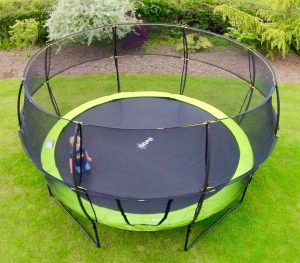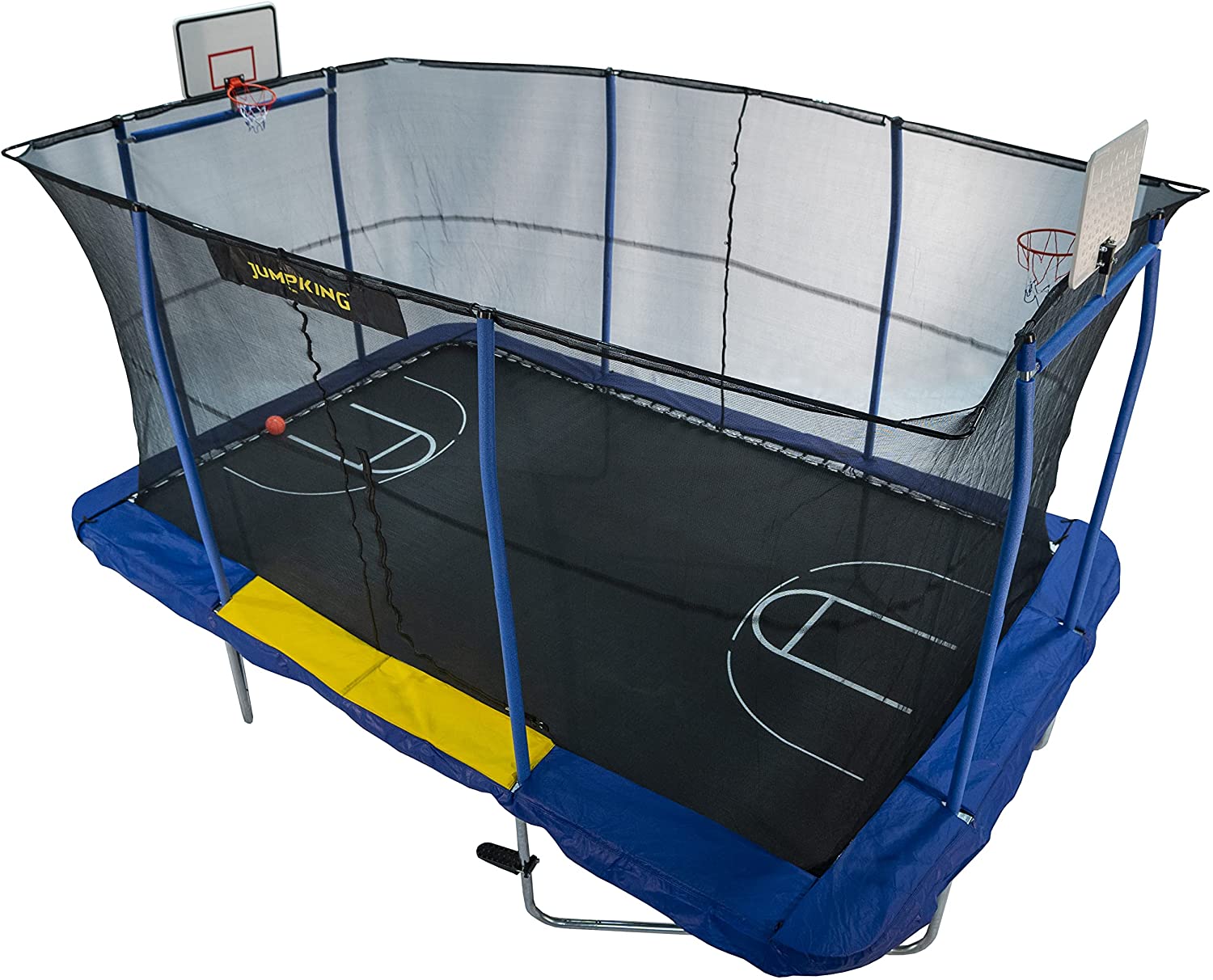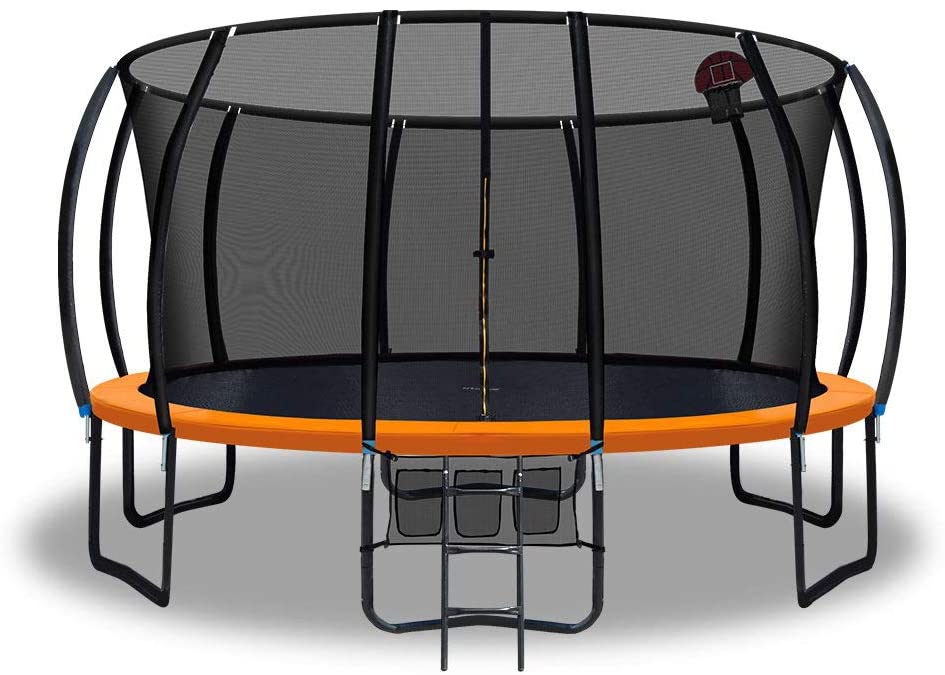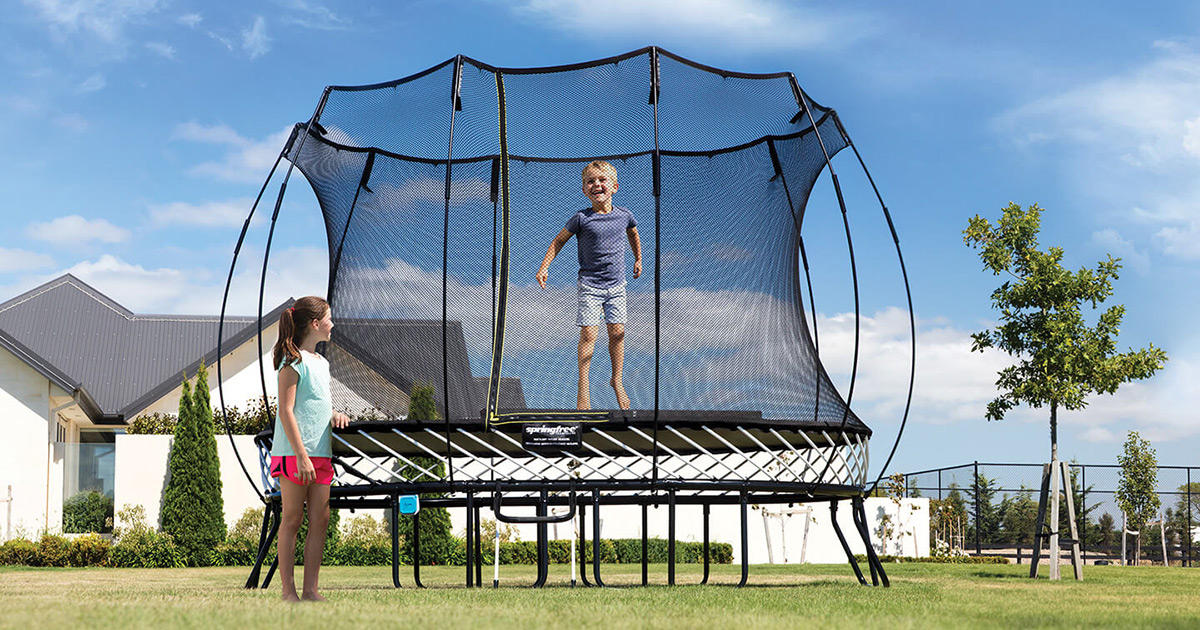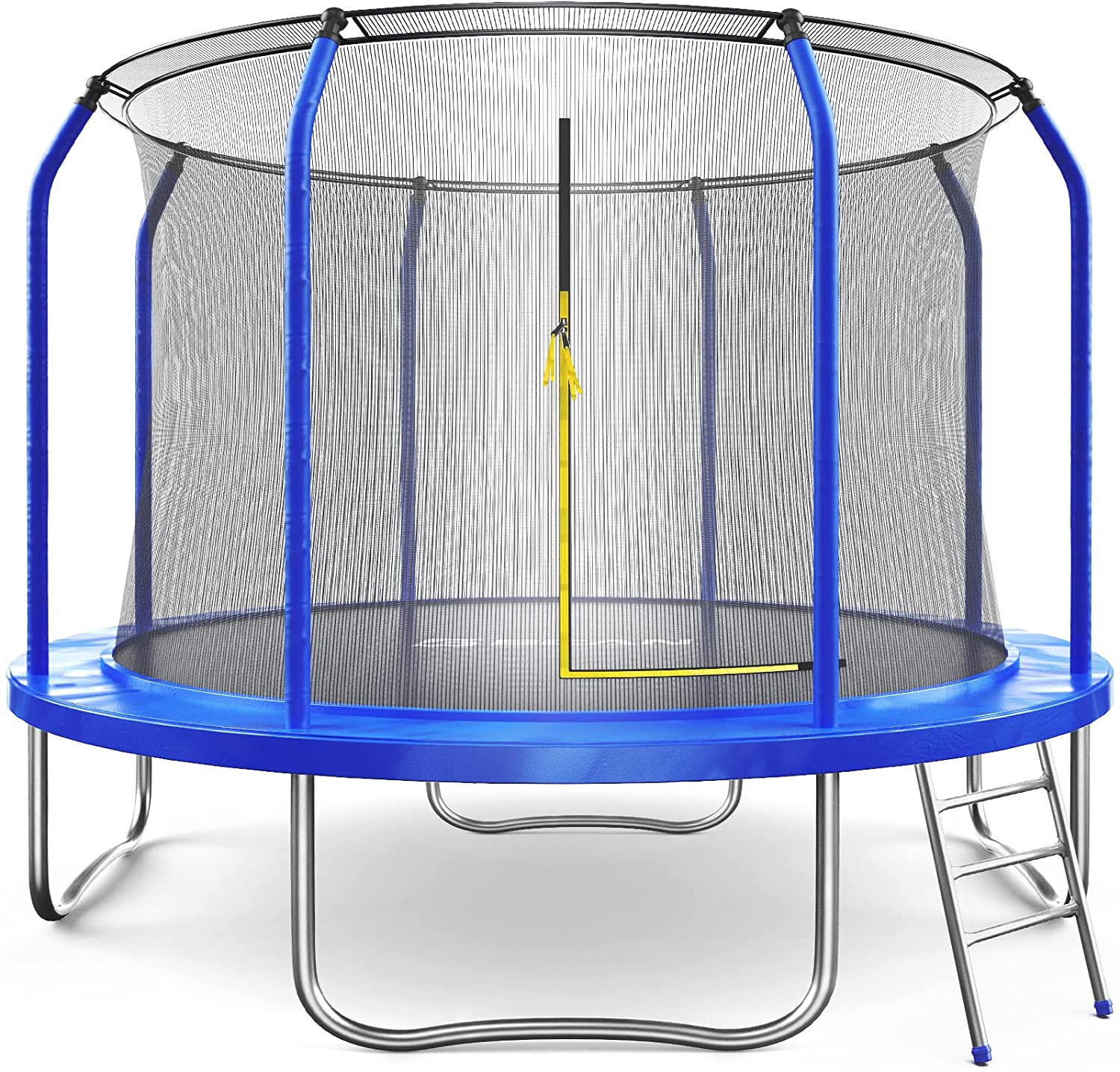If you are looking for something exciting to encourage kids to play outside, then outdoor trampolines could be an excellent option. Not only kids but adults can also enjoy the benefits of jumping with these installed in the backyard. They are great to be in during summers and you can use them in winters as well. Enjoy the fresh air as you pump up your heart rate on these trampolines that come in both big and small sizes.
What to look out for in an Outdoor Trampoline
Size of Your Backyard
The first thing you would want to decide is how much space in your backyard or garden you are willing to give up for installing the trampoline. Larger trampolines would take up a lot of space, making you compromise on other activities like sunbathing, barbecuing, etc., that you might want to do in your backyard. On the other hand, the bigger models offer more entertainment allowing you to bounce with a large group.
The trampoline could be so positioned in your backyard that it would let you keep a watch on your kids even if you are inside your home, sitting comfortably in your living or drawing-room.
Shape of the Trampoline
The circular trampolines take up more space in the yard than the square, rectangular and triangular ones of the same size. However, the round and trampolines having springs arranged in a circle focus most of the bouncing energy towards the centre of the mat, generally preventing injuries. However, if you have a narrow yard, a square or rectangular trampoline would be a better fit though they are not as safe as their round counterparts.
Weight Limit
Most trampolines have a single-person weight limit, but as parents, perhaps you know pretty well that children never want to be alone during their bouncing time. So zeroing in on a trampoline with a 200 lb weight limit would be a reasonably wise option for pre-teen jumpers. For adults and gymnasts, the weight limit should ideally be in the range of 400 lbs. The mini trampolines or rebounders that are a favourite with toddlers typically have their weight limit as 100 lbs.
Safety
Always keep an eye out for the safety features that the trampoline has to offer. Safety enclosures made of high-quality mesh material are a must for the bigger trampolines, while the rebounders could do with sturdy handrails for protection. Injuries could be further kept at bay with safety padding to cover the metal springs. A powerful anchor system or a weighted base would keep your trampoline from getting displaced and tipping over in windy areas. W or U-shaped legs add to the stability, while reinforced legs add an extra layer of protection.
Having said that, all the safety specifications listed on the product should be taken with a pinch of salt and no compromise on adult supervision during the bouncing time should be made.
Durability
It is best to settle for a trampoline made of galvanized steel for sturdiness, rust resistance and longevity. If that is not an option due to its higher price, you can go for stainless steel. The outdoor trampoline should be made of weather-proof materials to withstand harsh weather conditions like rain, hail or snow. UV resistance is also something that would add value to your purchase. With most of the trampoline manufacturers vouching for the durability of a product, it would be a good idea to go through the reviews carefully before making a buying decision.
Availability of Replacement Parts
Check the parts of the trampoline that are not covered within the warranty. There might be some components that need frequent replacement like the jumping mat and net that are more prone to wear and tear. The frame, however, doesn’t need as much replacement. So availability of suitable replacements should be factored in. It goes without saying that the less the need for replacement, the better. The mats are usually durable, but the same cannot be said about the spring covers and nets of the common brands.
Ease of Assembly and Maintenance
Your trampoline should not be much of a hassle to set up, not because it makes the job easier for you but since any mistake could lead to injuries at a later stage. If any part is wrongly connected, it could have unpleasant consequences. So it is best to go with a brand that gives clear and detailed instructions for assembly, is simple to put together and has a good customer support service.
You needn’t worry much about the maintenance of your trampoline if the weather is fine. If there is rain or snow, the weather-resistant trampolines can handle the harsh weather conditions to some extent. Having said that, if you want to use it in winter, you need to brush off the snow with a soft-bristled brush or broom. Never let the snow melt under the child’s feet when he is using the trampoline. If it is not in use for an extended period, it is best to disassemble it and store it in a protected place.
Check it regularly for issues. Problems like the springs getting stretched or missing coils can be fixed by yourself. Complex issues would, however, call for professional help.
Top Picks
Best Outdoor Trampoline: Everfit Trampoline for Kids 10/12/14/16FT
Best Small/Mini Outdoor Trampoline: Skywalker Trampolines Mini Trampoline with Enclosure Net
Best Outdoor Trampoline with Enclosure: SereneLife Outdoor Trampoline with Enclosure 10FT
Best Professional Outdoor Trampoline: SereneLife Portable & Foldable Trampoline – 40″
Safest Outdoor Trampoline: Everfit Trampoline for Kids 10/12/14/16FT
Best Outdoor Trampoline for Kids: Trampoline for Kids with Net – 5 FT
Best Outdoor Trampoline for Adults: Mini Trampoline 250F, Professional Fitness rebounder Trampoline for Adult
Outdoor Gymnastics Trampoline: CRINEX Outdoor Gymnastic 10 x 15ft Rectangular Trampoline with Safety Net
Best Large Outdoor Trampoline: Springfree Large Oval Trampoline (13FT X 8FT)
Best Toddler Outdoor Trampoline: Toddler Trampoline with Handle – 36″

